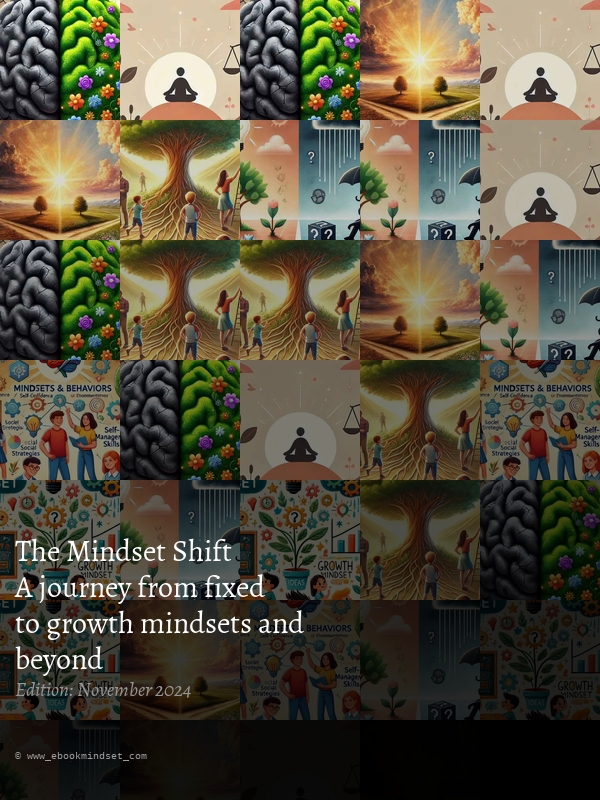Understanding the Mindset of Charity: A Comprehensive Exploration
Charity, often viewed as a noble act of giving, is deeply intertwined with the mindset of both the giver and the recipient. This article explores the concept of "mindset charity," examining how different mindsets influence charitable giving, their societal implications, and the evolution of charity in contemporary society. We will delve into the psychological underpinnings of charitable behavior, exploring the transition from a traditional charity mentality to a more equitable social justice approach. Furthermore, we'll examine the role of mindset in fundraising and offer practical implications for charitable organizations aiming to create a more just and sustainable world.
The Concept of Mindset in Charity
Mindset Defined
A mindset refers to an individual's established set of attitudes, beliefs, and assumptions that shape their perceptions and behaviors. Psychologist Carol Dweck's groundbreaking work categorizes mindsets into two primary types: fixed and growth. A fixed mindset assumes that abilities and intelligence are static, inherent traits—essentially, that you're born with a certain level of talent and that's it. Conversely, a growth mindset believes that abilities can be developed through dedication, hard work, learning, and persistence. These fundamental differences in belief significantly influence charitable behaviors and the effectiveness of charitable endeavors.
Impact on Charitable Giving
Research consistently suggests that individuals with a growth mindset are more likely to engage in charitable activities than those with a fixed mindset. A fixed mindset often correlates with lower donation intentions, particularly with causes involving ambiguous controllability, such as homelessness or long-term poverty alleviation. The uncertainty inherent in these types of causes can reinforce feelings of helplessness and powerlessness, deterring those with a fixed mindset from contributing. In contrast, those with a growth mindset view challenges as opportunities for positive change and personal development. They see obstacles not as insurmountable barriers, but as hurdles to overcome through collective effort and strategic planning. This belief fosters a proactive and optimistic outlook, motivating contributions to causes they believe can genuinely improve through sustained and collaborative action. This belief in the possibility of change, in the power of collective action, is a cornerstone of the growth mindset and a key driver of charitable giving.
Furthermore, the amount donated also differs between those with a fixed and growth mindset. Individuals with a growth mindset are more likely to donate larger sums and engage in more frequent charitable giving. They're not only more inclined to give, but also more willing to invest significant resources in causes they believe in. This is because their belief system encourages continuous improvement and impact maximization. They see their contributions as investments in long-term change, aligning with their belief in the potential for growth and development in society.
The Psychology Behind Charitable Giving
Cognitive and Affective Mediators
The relationship between mindsets and charitable giving isn't direct; it's mediated by various cognitive and emotional factors. Cognitive mediators include perceived donation efficacy – the belief that one's contribution will genuinely make a difference. Individuals with a growth mindset are more likely to believe that their donations can have a tangible positive impact, leading to increased engagement. This belief is fostered by their inherent faith in progress and the potential for human ingenuity to overcome societal challenges. They understand that even small contributions can accumulate to effect large-scale changes.
Affective mediators involve emotional responses to charitable appeals, such as empathy, compassion, and altruism. Individuals viewing charity as a means to foster positive change (growth mindset) experience stronger emotional connections to their chosen causes. This enhanced emotional engagement enhances their willingness to donate, both in terms of frequency and amount. The emotional connection translates into a deeper sense of responsibility and a stronger personal investment in the success of the charitable initiative.
The Role of Social Justice
Traditional charity, while well-intentioned, can sometimes unintentionally foster dependency among recipients and a sense of superiority among givers, thus perpetuating social injustices. The very structure of traditional charity can reinforce existing power imbalances and create a system where help is given, but systemic issues remain unaddressed. A shift from a charity mentality to a social justice mentality encourages a critical assessment of societal structures and advocacy for systemic changes rather than simply providing temporary relief. This transition is crucial for creating sustainable solutions to complex social issues. Instead of merely treating symptoms, a social justice approach tackles the root causes of inequality and empowers communities to drive their own change.
The Evolution of Charity: From Charity Mentality to Social Justice
Charity Mentality vs. Social Justice Mentality
The charity mentality is often paternalistic, characterized by donors seeing themselves as saviors and recipients as helpless victims. This dynamic creates an unjust power imbalance, where the giver's identity is reinforced at the expense of the recipient's dignity. The recipient is often positioned as passive and dependent, rather than an active participant in their own empowerment. This approach, while seemingly benevolent, can be disempowering and perpetuate cycles of dependency.
A social justice mentality, on the other hand, emphasizes empowerment and equality. It encourages respectful and collaborative community engagement, recognizing that those most affected by social issues are the best positioned to identify solutions and drive change. It's about partnership and mutual respect, not about a hierarchical relationship between the giver and receiver. This approach fosters a sense of agency and self-determination among recipients, enabling them to actively participate in shaping their own futures.
Educational Initiatives
Educational programs are increasingly focusing on shifting from a charity mentality to a social justice approach. Incorporating critical thinking about global issues, such as poverty, inequality, and systemic oppression, into curricula helps students develop a deeper understanding of these complex challenges. This fosters empathy and critical awareness, equipping future generations with the knowledge and skills necessary for advocacy and systemic change. By exposing students to a wide range of perspectives and challenging ingrained biases, educational institutions can cultivate a growth mindset and inspire future leaders who are committed to creating a more equitable world.
The Role of Mindset in Fundraising
Scarcity Mindset in Nonprofits
Many fundraisers operate under a scarcity mindset – believing that resources are inherently limited and must be aggressively competed for. This can lead to burnout among staff, unhealthy competition between organizations, and potentially unethical fundraising practices as financial goals are prioritized over effectively serving communities. A scarcity mindset can create a cutthroat environment that undermines collaboration and genuine community engagement. It distracts from the core mission of the organization and creates a climate of fear and pressure.
Abundance Mindset
An abundance mindset, in contrast, encourages collaboration and innovation in fundraising. It acknowledges that resources are plentiful and that creative strategies can unlock new opportunities for support. This approach fosters a more positive and sustainable fundraising environment, encouraging partnerships and shared resources. It allows organizations to focus on their missions and build stronger relationships with donors and the communities they serve. This collaborative spirit is crucial for attracting long-term support and building a strong foundation for impactful work.
Maximizing Mindset
A maximizing mindset – focused on achieving optimal outcomes – enhances donation potential. Fundraisers with this mindset seek diverse funding sources, not just relying on a single stream of income. They meaningfully engage donors by fostering genuine relationships and transparency. They craft impactful and creative campaigns that resonate with the target audience and clearly communicate the organization's vision and impact. This proactive and results-oriented approach is essential for maximizing the effectiveness of fundraising efforts and ensuring the sustainability of charitable organizations.
Practical Implications for Charitable Organizations
Adopting Growth Mindsets
Charitable organizations should actively encourage growth mindsets among their staff and volunteers. Training programs focusing on collaborative communication strategies, conflict resolution, and creative problem-solving are essential. This creates a culture of innovation and risk-taking, empowering employees to develop and implement new ideas without fear of failure. A growth mindset fosters resilience and adaptability, allowing organizations to navigate challenges and constantly improve their operations.
Community-Centric Approaches
Community-centric fundraising prioritizes the needs and voices of those served. Meaningful participation of community members in decision-making processes is essential. This approach allows organizations to create programs that truly address root causes, not just symptoms. By empowering communities to shape their own solutions, organizations build trust and foster a sense of ownership, ultimately leading to more sustainable and impactful outcomes. This approach goes beyond simply providing resources; it focuses on building genuine partnerships and fostering long-term collaborative engagement.
Conclusion: Towards a More Equitable Future
The interplay between mindsets and charitable giving profoundly impacts how society addresses poverty and inequality. Fostering growth mindsets among donors and shifting from traditional charity models to social justice frameworks creates more equitable systems that empower individuals and communities rather than perpetuating dependency. Individuals and organizations should regularly reflect on their motivations, challenge existing paradigms, and actively strive for meaningful change that respects the dignity and agency of all. By embracing a growth mindset and adopting a social justice perspective, we can collectively build a more just and sustainable future for everyone.




